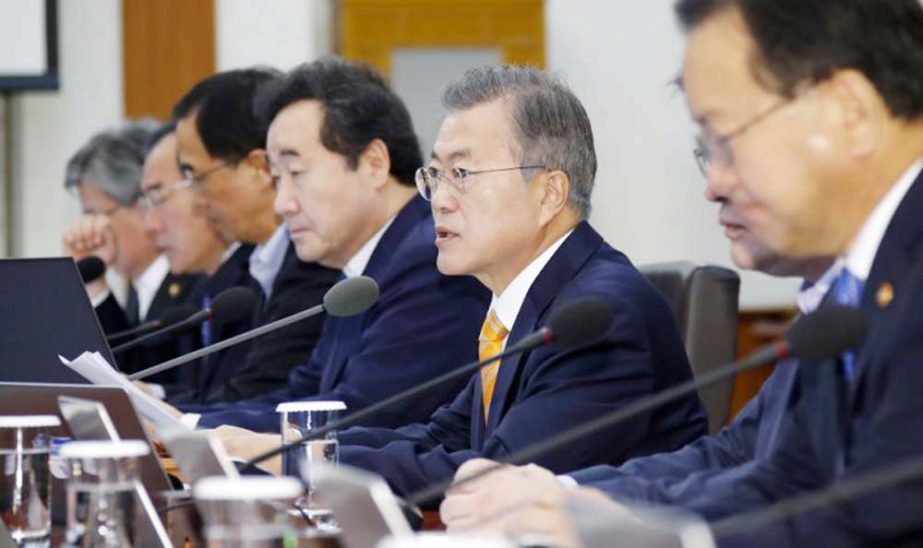
AP. Seoul :
The government of South Korean President Moon Jae-in on Tuesday formally approved the rapprochement deals he made with North Korean leader Kim Jong Un last month.
The step is largely seen as an effort by Moon to show he’s determined to carry out the deals despite growing skepticism about whether his engagement policy could eventually lead to North Korea’s nuclear disarmament.
Moon “ratified” the deals on Tuesday afternoon, hours after his Cabinet approved them during a regular meeting, Moon’s office said in a statement. At the start of the Cabinet meeting, Moon said in televised remarks that the deals’ ratification would help further improve ties with North Korea and accelerate global efforts to achieve the “complete denuclearization of the Korean Peninsula.”
The endorsements are certain to deepen a national divide in South Korea because conservatives have opposed such moves, saying the North Korea deals will undermine national security and waste taxpayers’ money.
In South Korea, a president can ratify some agreements with North Korea without parliamentary endorsement.
Moon, a liberal who took office last year, has said that greater reconciliation with North Korea would help resolve the international standoff over the North’s nuclear ambitions. Moon has met with Kim three times this year, and he shuttled between Pyongyang and Washington to help arrange a series of high-level talks between the countries, including a June summit between Kim and President Donald Trump in Singapore.
Since entering nuclear talks earlier this year, Kim has taken some steps like dismantling his nuclear testing site and releasing American detainees. The United States responded by suspending some of its annual military drills with South Korea but is reluctant to provide the North with major political or economic rewards unless the country takes significant disarmament steps.
Moon’s September deals with Kim were largely associated with the broader agreements struck during their first summit in April. Under the latest deals, the two Koreas are to hold a groundbreaking ceremony on a project to reconnect cross-border railways and roads and push to resume stalled economic cooperation projects. The two sides also agreed to disarm their shared border, establish buffer zones along the border and withdraw some of their front-line guard posts.
Moon’s conservative rivals have lambasted his September deals, arguing that mutual reductions of conventional military might would only weaken the South’s war readiness because the North’s nuclear capability remains intact.

